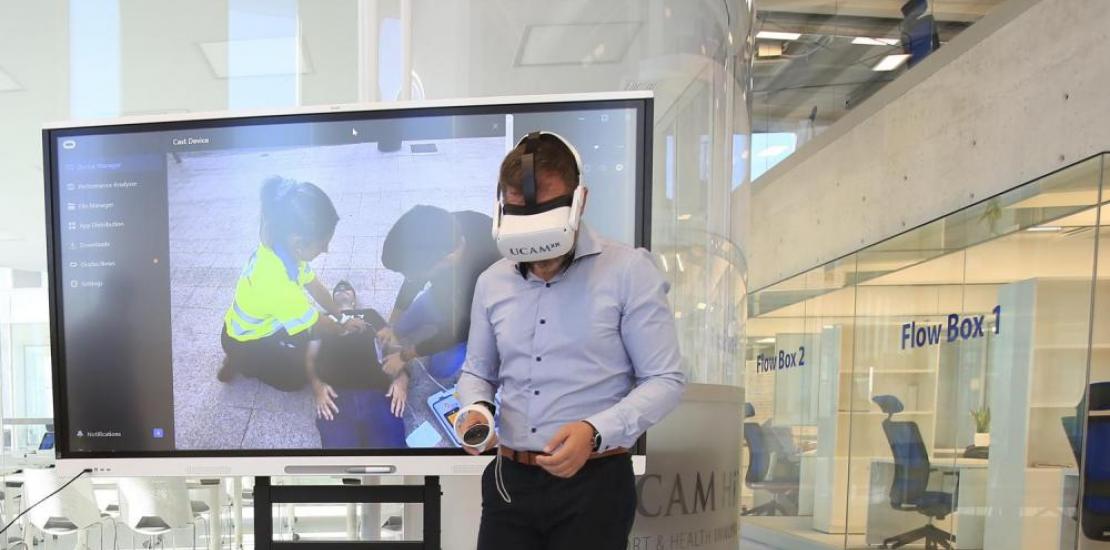The Mapfre Foundation finances a UCAM project to train schoolchildren in cardiopulmonary resuscitation
The team of researchers led by Manuel Pardo will determine the effectiveness of 'gamification' in the classroom in order to select tools and methodologies to raise awareness and train to save lives
Up to 80% of people who suffer a cardiac arrest outside a healthcare facility could be saved if action were taken in the first 3-4 minutes with chest compressions and the use of an external defibrillator. Therefore, education in cardiopulmonary resuscitation (CPR) skills in schools could contribute significantly to increasing the survival rate in out-of-hospital emergencies.
This is the idea behind the research work of Dr Manuel Pardo, lecturer in the area of health sciences at UCAM, who has received one of the seven 'Ignacio H. de Larramendi' research fellowships offered by the Mapfre Foundation to promote health. More than 300 applications were submitted for said fellowship. The evaluation committee has assessed both the applicant's experience in this field and the innovation, scientific-technical quality, viability and social applicability of the project.
Entitled 'Programme for Education in Health Emergency Skills (PECES in Spanish)', the study aims to determine the best method for training schoolchildren in this field, using a new design. ‘Gamification and new technologies have provided new educational resources, but we must determine whether the inclusion of these changes really improves training and whether they do so at all educational stages’, states Manuel Pardo, who adds that ‘if we start by training children (in early childhood, primary and compulsory secondary education), in a few years' time we will have a society with great knowledge regarding resuscitation and that will reduce mortality due to cardiorespiratory arrest’. The project encompasses initiatives in the metaverse (with the educational use of 'Minecraft') and immersive experiences in the Wonda platform.
A comparison will be made between different methodologies during the development of the project, from the conventional to the most innovative and active ones, always putting the pupil at the centre of the teaching-learning process and including activities with mobility. In addition to analysing the effectiveness in the acquisition of skills, systems will be included to determine learning curves, forgetting curves and the motivation children have for each of the teaching resources, all of this ‘with the aim of having a map of teaching resources which allows CPR and first aid to be taught, adapted to the different school stages’, says the UCAM researcher.
Manuel Pardo has extensive experience in the use of new technologies for first- aid training and, thanks to the 'New Technologies for Health' Research Group he leads at UCAM, he has intensified his efforts to generate innovative teaching resources which reach the most possible people. Recently, and on the occasion with the European Cardiac Arrest Awareness Day, UCAM presented its website rcp.ucam.edu which compiles its scientific content and teaching resources in different and attractive formats, many of them interactive.




